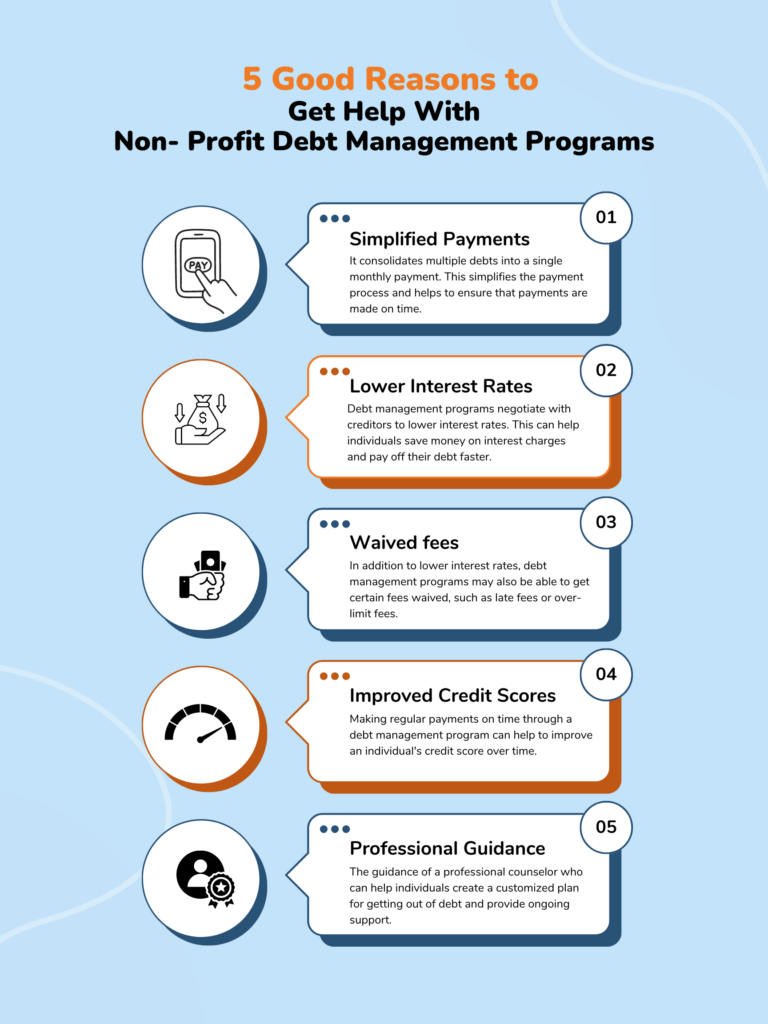The Comprehensive Guide to Creating an Effective Financial Debt Monitoring Strategy for Conquering Financial Difficulties
Browsing monetary difficulties necessitates a tactical method to financial obligation administration, emphasized by a detailed understanding of one's economic landscape. By carefully assessing earnings, expenses, and outstanding financial obligations, people can establish a clear foundation for their economic objectives.
Understanding Your Financial Circumstance
Many individuals discover themselves unclear about their financial standing, which can make complex the financial debt management process. A clear understanding of one's monetary scenario is necessary for effective financial obligation management. This includes performing a complete analysis of income, assets, liabilities, and expenses. A comprehensive evaluation assists in identifying the true financial picture and highlights areas that call for prompt focus.
To start, individuals ought to provide all resources of income, including salaries, sideline, and easy revenue streams. Next, a detailed account of month-to-month expenditures ought to be recorded, classifying them into fixed and variable costs. This enables for an exact estimation of non reusable income, which is important in figuring out exactly how a lot can be alloted toward debt payment.
Recognizing one's financial circumstance not just help in effective financial obligation administration yet also lays a solid structure for future financial planning. This action is crucial in guaranteeing that individuals can browse their financial challenges extra efficiently and function towards attaining long-term stability.
Setting Clear Financial Goals
Developing clear economic objectives is an important following action after obtaining a comprehensive understanding of your monetary circumstance. These objectives serve as a roadmap, assisting your initiatives and choices as you function towards accomplishing financial stability.
Use the clever criteria-- Specific, Quantifiable, Possible, Relevant, and Time-bound-- to guarantee your objectives are distinct. For circumstances, rather than mentioning, "I want to save even more cash," specify, "I will conserve $5,000 for an emergency situation fund within the following year." This quality not just improves focus but also allows for better tracking of your development.
Furthermore, prioritize your goals according to their seriousness and significance. This prioritization assists in directing your sources successfully, making sure that necessary goals are dealt with first. By setting clear economic objectives, you develop an organized method to handling your financial obligations and navigating monetary challenges, inevitably positioning yourself for an extra safe financial future.
Establishing a Budget Strategy
Creating a budget strategy is important for managing your financial resources properly and ensuring that you stay on track toward accomplishing your economic objectives. A well-structured spending plan serves as a roadmap, directing your investing and conserving choices while helping you identify areas for enhancement.
To establish a reliable budget strategy, start by detailing all sources of income, including wage, perks, and any type of side earnings. Next, categorize your costs right into taken care of and variable expenses. Fixed costs, such as rental fee or home mortgage settlements, remain continuous, while variable expenditures, like groceries and home entertainment, can change.
When you have a clear photo of your earnings and expenses, her explanation assign funds to each category based upon your economic top priorities. Make sure that your budget plan enables savings and debt settlement, and take into consideration making use of the 50/30/20 regulation-- 50% for demands, 30% for desires, and 20% for cost savings and financial obligation.
Evaluation your budget monthly to readjust for any kind of adjustments in revenue or expenditures, and track your investing to make sure adherence (debt management plan singapore). By dedicating to a regimented budgeting process, you can acquire control over your financial resources and pursue financial security

Checking Out Financial Debt Settlement Approaches
Financial debt settlement approaches are crucial for reclaiming financial security and reducing the concern of exceptional obligations. Various methods can be utilized, each made to effectively take on the one-of-a-kind conditions of people dealing with debt challenges.
One popular approach is the financial obligation snowball method, which prioritizes settling the smallest debts initially. This strategy supplies mental motivation as individuals experience fast success, promoting a sense of achievement. Alternatively, the financial obligation avalanche method focuses on paying off financial debts with the greatest rates of interest initially, eventually reducing the complete rate of interest paid over time.
An additional efficient technique is financial debt combination, which involves incorporating several debts right into a single car loan with a lower rates of interest. This not only streamlines the repayment procedure however can likewise decrease monthly payments. Moreover, bargaining with creditors for a lot more desirable terms, such as reduced rates of interest or extensive payment periods, can ease economic strain.
Keeping Financial Self-control
Effective debt repayment techniques pivot not just on the methods selected yet also on the discipline exercised throughout the procedure. Keeping economic discipline is important for making sure that people comply with their financial debt management plans and attain their financial objectives. This involves developing an organized budget plan that prioritizes financial debt repayment while enabling necessary he has a good point living expenditures.
One effective strategy to cultivating self-control is to establish clear, possible goals. People ought to break down their general financial obligation into smaller sized, manageable targets, which can aid foster a feeling of achievement as each goal is met. Additionally, on a regular basis evaluating one's economic circumstance and adjusting the spending plan as needed can enhance dedication to the strategy.

Inevitably, maintaining financial technique requires constant initiative and mindfulness (debt management plan singapore). By focusing on debt repayment and taking on sensible investing practices, individuals can navigate their monetary challenges successfully and lead the way for a much more safe and secure monetary future
Final Thought
In verdict, establishing an efficient debt monitoring plan requires a detailed understanding of one's economic scenario, paired he has a good point with the solution of clear, achievable goals. By sticking to these concepts, people can significantly boost their ability to take care of financial debt and attain financial health.
Browsing financial difficulties necessitates a strategic approach to debt administration, underscored by a detailed understanding of one's economic landscape. Recognizing one's economic scenario not only aids in efficient financial obligation administration yet additionally lays a solid foundation for future financial planning.Establishing clear monetary goals is a vital following action after getting a thorough understanding of your economic circumstance. By setting clear financial objectives, you create a structured technique to managing your debts and navigating monetary difficulties, inevitably placing on your own for a more safe and secure financial future.
